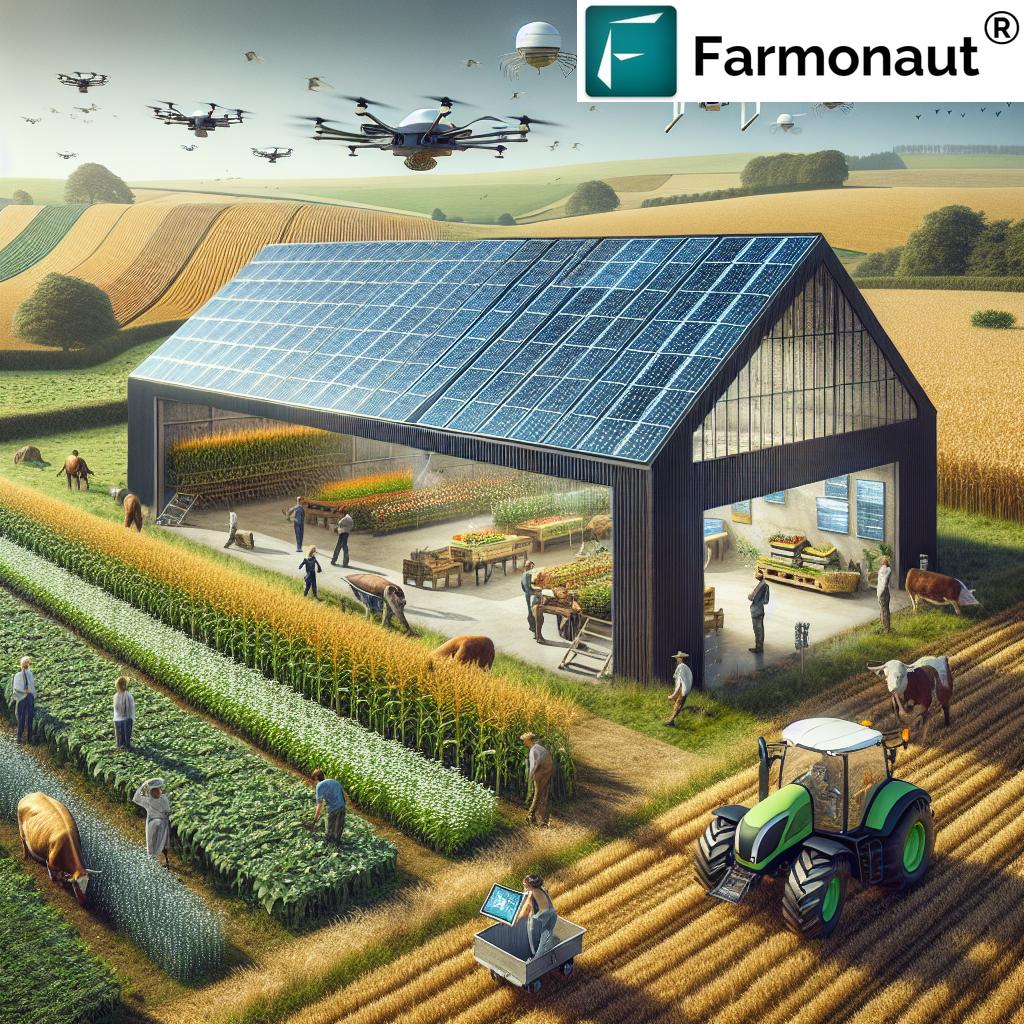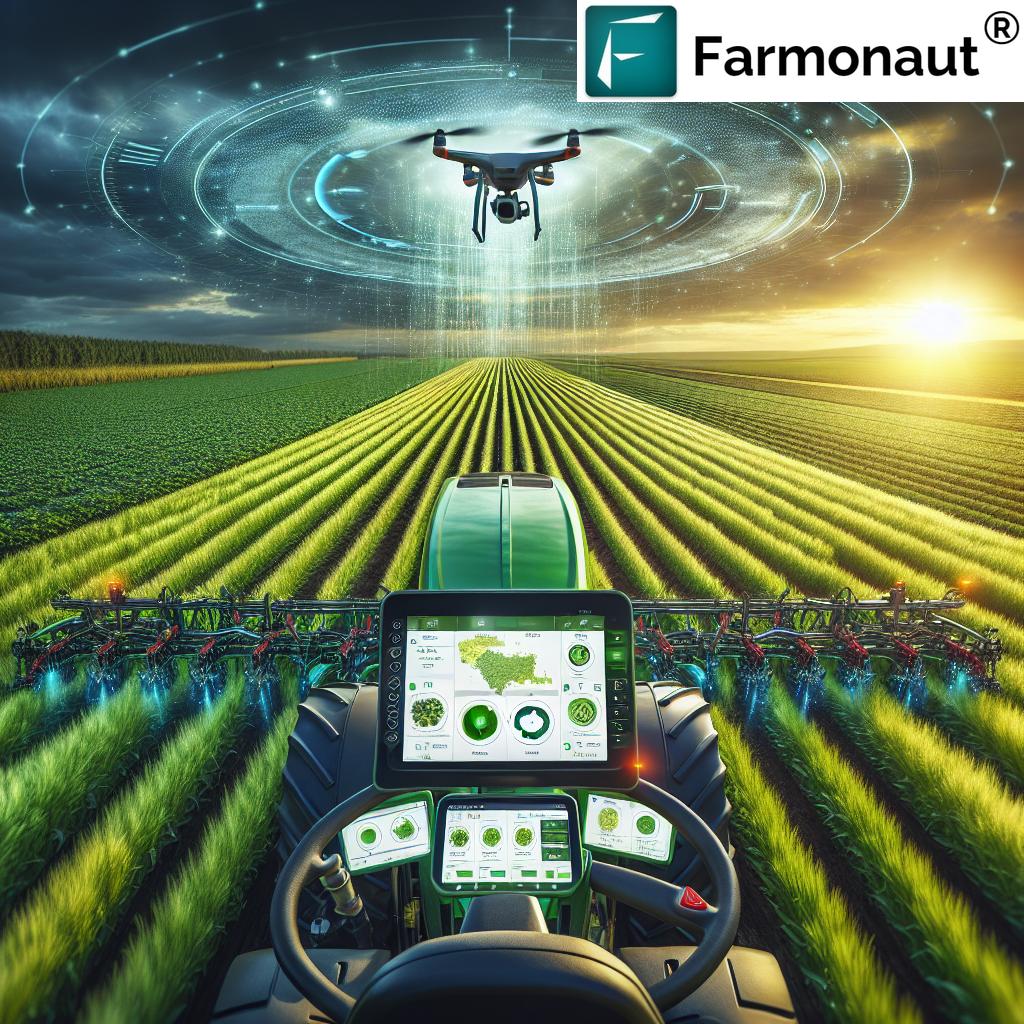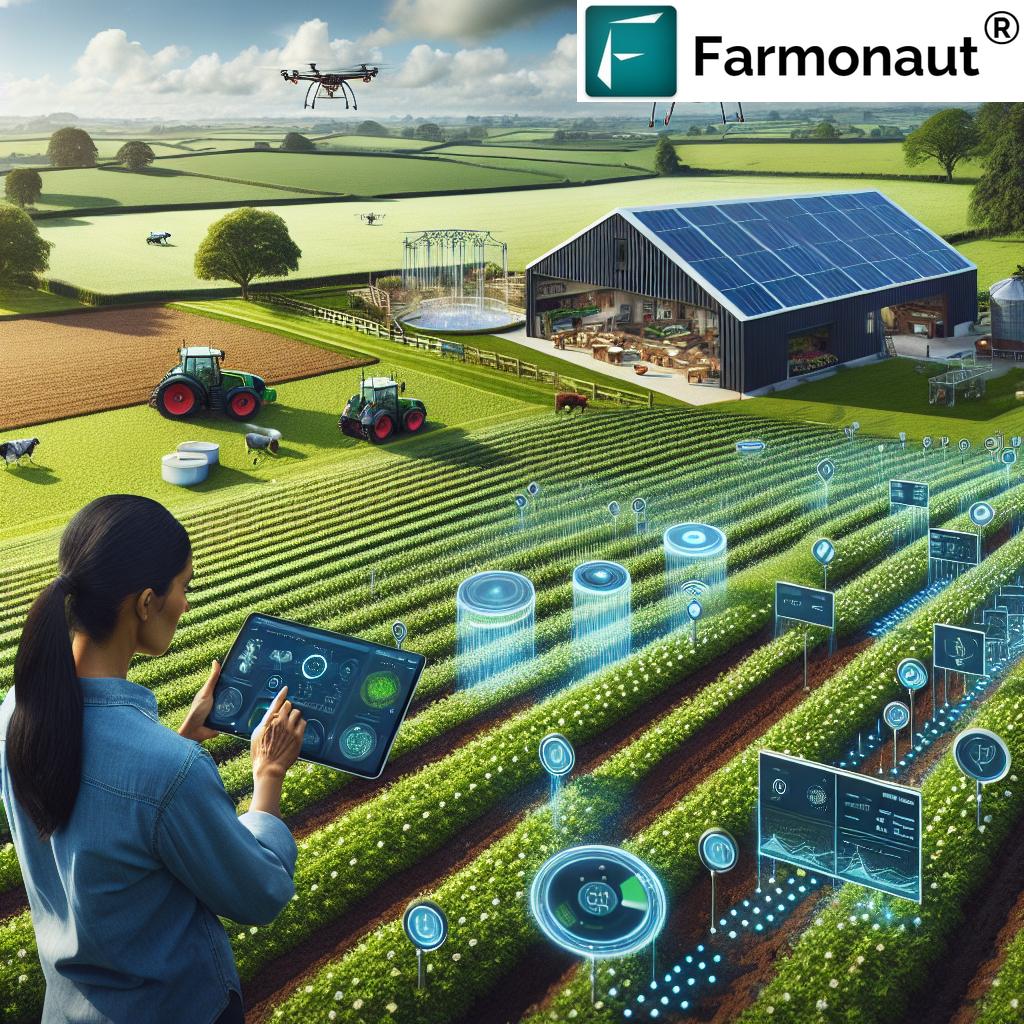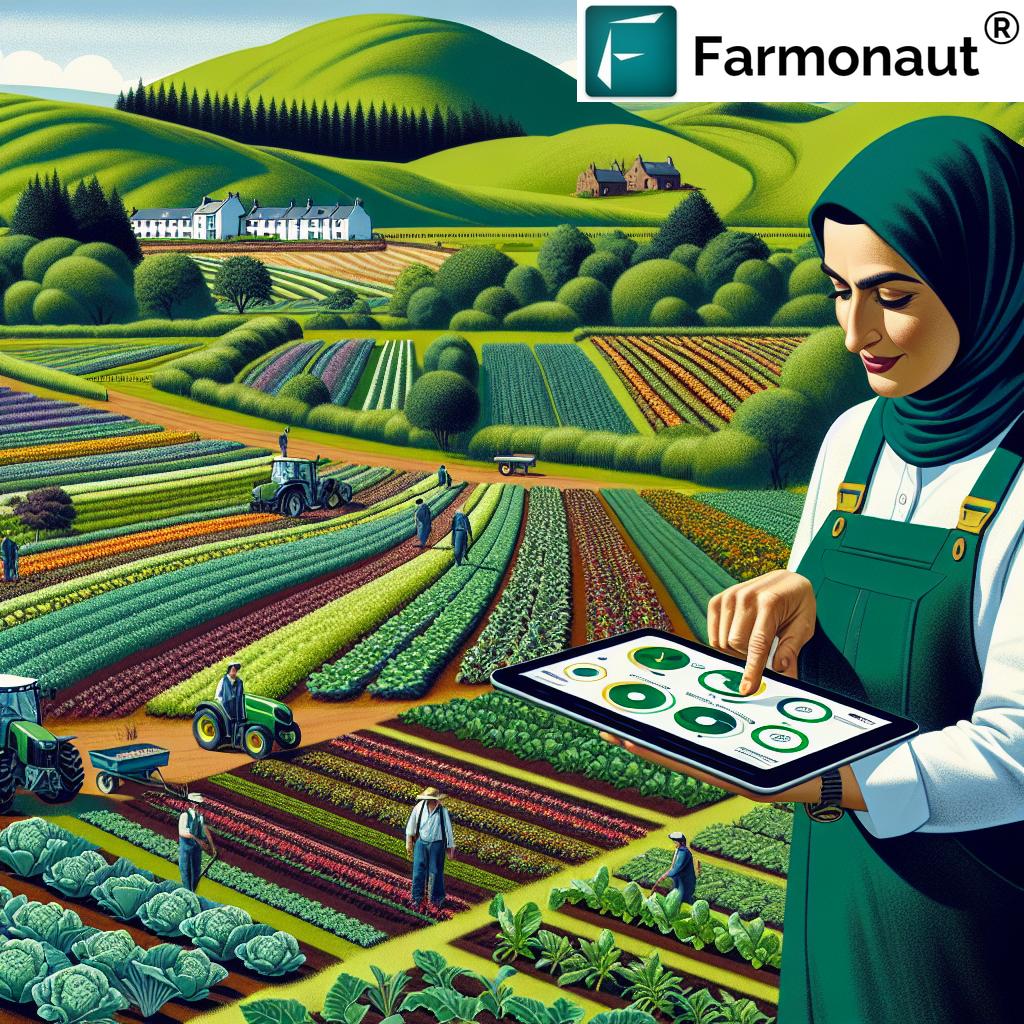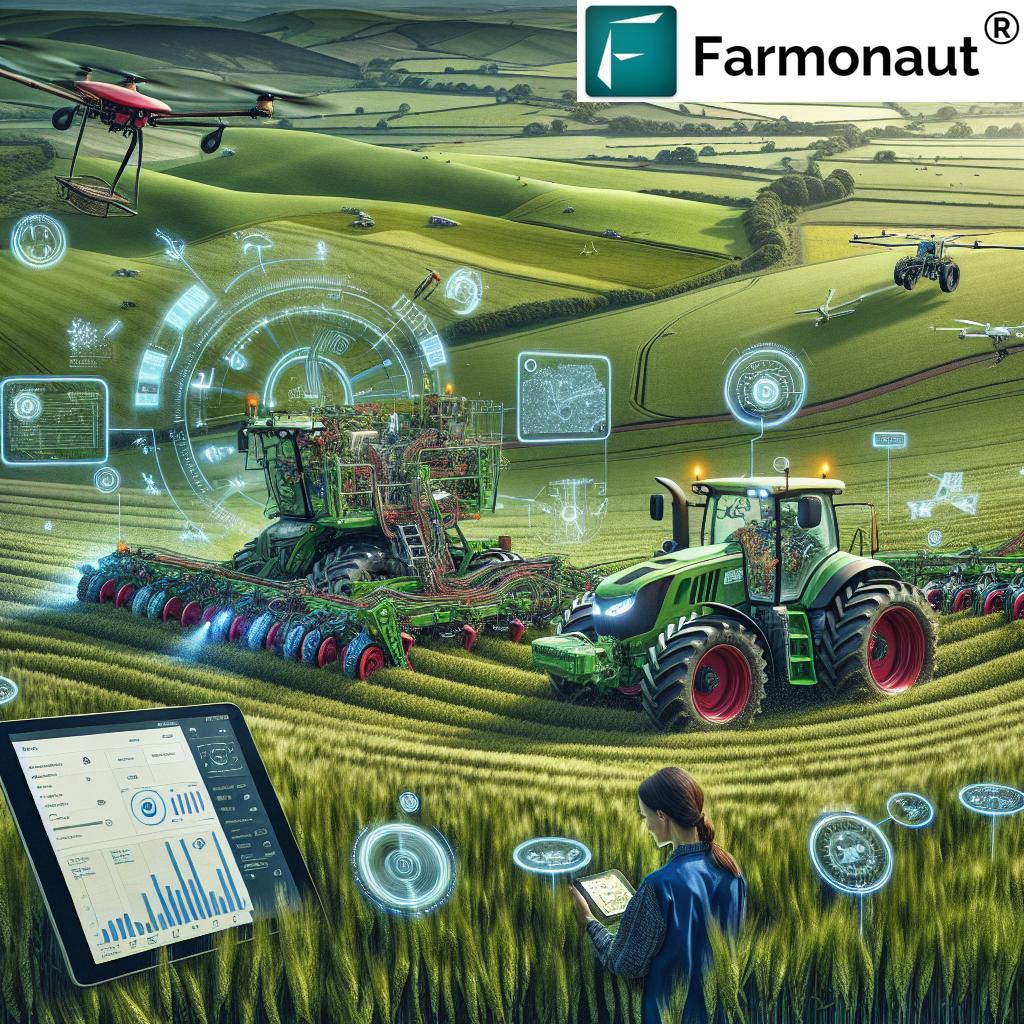UK’s New 25-Year Farming Roadmap: Boosting Sustainable Agriculture and Food Security in England
“The UK’s new 25-year farming roadmap aims to boost sustainable agriculture and food security across England.”
In a groundbreaking move that promises to reshape the agricultural landscape of England, the UK government has unveiled an ambitious 25-year farming roadmap. This comprehensive plan, announced by Secretary of State for Environment, Food and Rural Affairs, Steve Reed, at the Oxford Farming Conference, marks a significant shift in focus towards fostering an environment that supports agricultural growth, ensures food security, and restores natural ecosystems. As we delve into the details of this transformative initiative, we’ll explore how it aims to revolutionize the farming sector, boost profitability for British farmers, and pave the way for a more sustainable and secure food future.
The Vision: A New Era for British Farming
At the heart of this new roadmap lies a vision that places food production at the forefront of agricultural policy. Reed’s address highlighted a crucial shift from previous approaches that may have overlooked this vital aspect. The government’s renewed commitment to domestic food production is set to create a ripple effect across the entire farming sector, with far-reaching implications for food security, rural economies, and environmental sustainability.
Key components of this vision include:
- Enhancing food production capabilities
- Ensuring business viability through diverse income sources
- Supporting nature restoration as a cornerstone of sustainable food production
This three-pronged approach aims to create a robust and resilient agricultural sector capable of meeting the challenges of the 21st century while safeguarding the environment for future generations.
Leveraging Government Purchasing Power
One of the most significant aspects of this new initiative is the government’s commitment to leverage its purchasing power to support local farmers. By pledging to buy more British food, the government is creating a direct and substantial market for domestic produce. This move not only supports local farmers but also contributes to reducing food miles and enhancing the country’s food security.
We believe this strategy will:
- Boost demand for British agricultural products
- Provide farmers with a stable market for their produce
- Encourage investment in local farming infrastructure
- Promote the growth of rural economies

Diversifying Income Streams: A Path to Profitability
Recognizing the challenges faced by farmers, particularly during adverse conditions such as poor harvests, the roadmap emphasizes the importance of income diversification. This strategy is crucial for maintaining profitability and ensuring the long-term viability of farming businesses across England.
Potential avenues for income diversification include:
- Agritourism initiatives
- Value-added product development
- Renewable energy projects on farmland
- Participation in environmental stewardship programs
By encouraging farmers to explore these additional income streams, the government aims to create a more resilient agricultural sector that can weather economic uncertainties and environmental challenges.
Embracing Sustainable Farming Practices
At the core of the 25-year roadmap is a strong emphasis on sustainable farming practices. This approach recognizes that the long-term viability of agriculture is inextricably linked to the health of our ecosystems and the prudent management of natural resources.
Key sustainable farming practices promoted in the roadmap include:
- Precision agriculture techniques
- Climate-smart farming methods
- Soil conservation and regeneration strategies
- Water management and efficiency improvements
These practices not only contribute to environmental conservation but also offer potential cost savings and productivity improvements for farmers.
The ADOPT Fund: Fostering Innovation in Agriculture
To support the implementation of these sustainable practices and drive innovation in the sector, the government has announced the launch of the Accelerating Development of Practices and Technologies (ADOPT) Fund. This grant program is designed to provide financial support for farmer-led trials of innovative technologies and sustainable methods aimed at enhancing food production while mitigating climate change and safeguarding the environment.
The ADOPT Fund aims to:
- Encourage on-farm experimentation with new technologies
- Facilitate the adoption of sustainable farming practices
- Foster collaboration between farmers, researchers, and agritech companies
- Accelerate the transition to more efficient and environmentally friendly farming methods
“The government initiative includes a grant program for farmer-led trials of innovative technologies to enhance agricultural productivity.”
This fund represents a significant investment in the future of British farming, recognizing that innovation and sustainability go hand in hand in creating a resilient and productive agricultural sector.
Agri-Environmental Schemes: Balancing Production and Conservation
The roadmap places a strong emphasis on agri-environmental schemes, recognizing that environmental stewardship is not at odds with productive farming but is, in fact, essential for long-term agricultural sustainability. These schemes aim to incentivize farmers to adopt practices that benefit both their operations and the surrounding ecosystems.
Key aspects of these schemes include:
- Payments for ecosystem services provided by farmland
- Support for habitat restoration and creation
- Incentives for reducing agricultural pollution
- Promotion of biodiversity on farms
By integrating these environmental considerations into farming practices, the roadmap seeks to create a more holistic approach to agriculture that recognizes the interdependence of food production and ecological health.
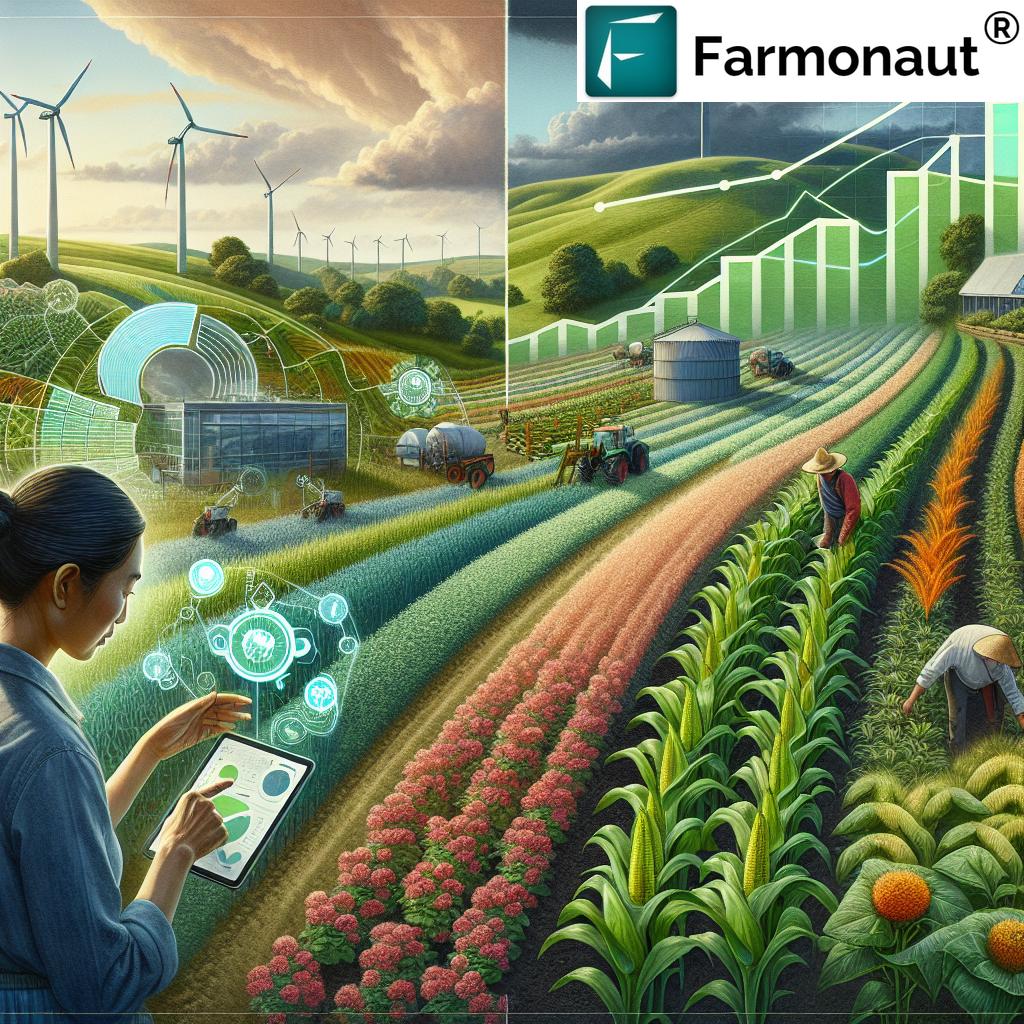
Rural Development Strategies: Strengthening Farming Communities
The 25-year farming roadmap recognizes that the success of the agricultural sector is closely tied to the vitality of rural communities. As such, it includes comprehensive rural development strategies aimed at supporting the broader ecosystem in which farms operate.
These strategies encompass:
- Improvements to rural infrastructure, including broadband connectivity
- Support for rural businesses and entrepreneurship
- Investment in agricultural education and skills development
- Promotion of rural tourism and cultural heritage
By fostering vibrant rural communities, the roadmap aims to create an environment where farming can thrive, attracting new entrants to the sector and retaining the next generation of agricultural professionals.
Leveraging Technology for Crop Yield Optimization
A key component of the roadmap is the focus on leveraging advanced technologies to optimize crop yields. This approach recognizes the potential of precision agriculture and smart farming systems to revolutionize food production.
Technologies and approaches being promoted include:
- Satellite-based crop monitoring systems
- AI-driven decision support tools for farmers
- IoT sensors for real-time field data collection
- Predictive analytics for crop management
These technologies offer the potential to significantly increase productivity while reducing resource use, aligning with the roadmap’s goals of sustainability and profitability.
The Role of Farmonaut in Supporting the UK’s Agricultural Vision
As we consider the ambitious goals set out in the UK’s 25-year farming roadmap, it’s worth noting how existing agricultural technology solutions can support these objectives. Farmonaut, a pioneering agricultural technology company, offers advanced, satellite-based farm management solutions that align closely with many of the roadmap’s key priorities.
Farmonaut’s platform provides valuable services such as:
- Real-time crop health monitoring
- AI-based advisory systems
- Blockchain-based traceability
- Resource management tools
These tools can play a crucial role in helping British farmers adopt precision agriculture techniques, optimize crop yields, and implement climate-smart farming practices – all key objectives of the new roadmap.
For farmers looking to leverage these technologies, Farmonaut offers several ways to access their services:
Additionally, for developers and businesses looking to integrate Farmonaut’s satellite and weather data into their own systems, the company offers API access. Detailed information about the API can be found in the API Developer Docs.
Collaborative Approach: Government and Farming Sector Partnership
A cornerstone of the 25-year farming roadmap is the emphasis on collaboration between the government and the agricultural sector. This partnership approach recognizes that the challenges facing British farming are complex and multifaceted, requiring input and cooperation from all stakeholders.
Key aspects of this collaborative approach include:
- Regular consultations with farming organizations and individual farmers
- Establishment of working groups to address specific challenges
- Joint research initiatives between government agencies and agricultural institutions
- Flexible policy frameworks that can adapt to changing needs and circumstances
By fostering this collaborative environment, the roadmap aims to ensure that policies and initiatives are grounded in the real-world experiences and needs of the farming community.
Addressing Food Security Challenges
At the heart of the 25-year farming roadmap is a commitment to enhancing food security in England. This focus recognizes the critical importance of a stable and resilient domestic food production system in the face of global challenges such as climate change, population growth, and geopolitical instability.
Strategies to enhance food security include:
- Increasing domestic production of key food commodities
- Diversifying crop varieties to improve resilience
- Investing in food storage and distribution infrastructure
- Promoting local food systems and shortening supply chains
By prioritizing food security, the roadmap aims to reduce the country’s reliance on imports and create a more self-sufficient agricultural sector.
Environmental Restoration and Sustainable Production
The roadmap recognizes that environmental restoration is not just a noble goal but a necessary foundation for sustainable food production. It emphasizes the need to balance productive farming with conservation efforts, understanding that healthy ecosystems are essential for long-term agricultural viability.
Key initiatives in this area include:
- Reforestation and agroforestry projects
- Wetland restoration and protection
- Soil health improvement programs
- Pollinator-friendly farming practices
These efforts aim to create a more harmonious relationship between agriculture and the natural environment, ensuring that farming practices contribute to, rather than detract from, ecological health.
Supporting the Next Generation of Farmers
Recognizing the importance of attracting and retaining young talent in the agricultural sector, the roadmap includes specific measures to support the next generation of farmers. These initiatives aim to address the challenges of an aging farming population and ensure the long-term sustainability of the sector.
Key support measures include:
- Mentorship programs pairing experienced farmers with newcomers
- Financial incentives for young people entering farming
- Educational programs focusing on modern agricultural practices and technologies
- Support for innovative business models that make farming more accessible to new entrants
By investing in the next generation, the roadmap aims to inject new energy and ideas into the farming sector, driving innovation and ensuring its continued vitality.
Key Components of UK’s 25-Year Farming Roadmap
| Component | Primary Focus | Estimated Impact |
|---|---|---|
| Precision Agriculture | Optimizing resource use through technology | 20% increase in crop yields |
| Climate-Smart Farming | Adapting to and mitigating climate change | 30% reduction in carbon emissions |
| Agri-Environmental Schemes | Balancing production and conservation | 15% increase in biodiversity on farmland |
| Income Diversification | Enhancing farm business resilience | 25% increase in average farm income |
| ADOPT Fund | Supporting innovation and technology adoption | 500 farmer-led trials funded annually |
Challenges and Opportunities
While the 25-year farming roadmap presents a comprehensive vision for the future of British agriculture, it’s important to acknowledge the challenges that lie ahead in its implementation. These challenges, however, also present opportunities for innovation and growth within the sector.
Some key challenges and opportunities include:
- Balancing increased production with environmental conservation
- Adapting to changing consumer preferences and dietary trends
- Managing the transition to new technologies and farming practices
- Addressing potential labor shortages in the agricultural sector
- Navigating the evolving international trade landscape post-Brexit
By proactively addressing these challenges, the roadmap aims to position British farming to capitalize on new opportunities and emerge stronger and more resilient.
The Role of Technology in Implementing the Roadmap
Technology plays a crucial role in realizing the ambitious goals set out in the 25-year farming roadmap. From precision agriculture to blockchain-based traceability, technological innovations are set to transform every aspect of farming operations.
Key technological focus areas include:
- Satellite-based crop monitoring and management systems
- AI and machine learning for predictive analytics in farming
- Robotics and automation for labor-intensive tasks
- Blockchain technology for supply chain transparency
Companies like Farmonaut are at the forefront of this technological revolution, offering solutions that align closely with the roadmap’s objectives. Their satellite-based farm management platform, for instance, provides farmers with real-time insights into crop health, soil moisture levels, and other critical metrics, enabling more informed decision-making and resource optimization.
FAQs About UK’s 25-Year Farming Roadmap
- Q: What is the main goal of the UK’s 25-year farming roadmap?
A: The main goal is to boost sustainable agriculture and food security in England while enhancing the profitability of British farmers. - Q: How does the roadmap address environmental concerns?
A: The roadmap emphasizes sustainable farming practices, agri-environmental schemes, and nature restoration as integral parts of the agricultural strategy. - Q: What support is available for farmers under this new plan?
A: The plan includes initiatives like the ADOPT Fund for innovative technology trials, government purchasing commitments for local produce, and support for income diversification. - Q: How does the roadmap aim to improve food security?
A: It focuses on increasing domestic food production, diversifying crop varieties, and investing in food storage and distribution infrastructure. - Q: What role does technology play in this roadmap?
A: Technology is crucial, with emphasis on precision agriculture, smart farming systems, and innovations like satellite-based crop monitoring to optimize yields and resource use.
Conclusion: A Vision for a Sustainable and Profitable Farming Future
The UK’s 25-year farming roadmap represents a bold and comprehensive vision for the future of agriculture in England. By addressing key challenges such as food security, environmental sustainability, and farm profitability, it sets the stage for a transformative period in British farming.
As we move forward, the success of this initiative will depend on the collective efforts of farmers, policymakers, technology providers, and other stakeholders in the agricultural sector. With its focus on innovation, sustainability, and collaboration, the roadmap offers a promising path towards a more resilient, productive, and environmentally friendly farming future.
For farmers and agricultural businesses looking to align with the goals of this roadmap, leveraging advanced technologies and data-driven insights will be crucial. Platforms like Farmonaut offer valuable tools to support this transition, enabling farmers to embrace precision agriculture techniques, optimize resource use, and enhance overall farm productivity.
As we embark on this 25-year journey, the future of British farming looks bright, promising not only increased food security and environmental stewardship but also new opportunities for growth and innovation in the agricultural sector.
Earn With Farmonaut: Join Farmonaut’s Affiliate Program and earn 20% recurring commission by sharing your promo code and helping farmers save 10%. Onboard 10 Elite farmers monthly to earn a minimum of $148,000 annually—start now and grow your income!






